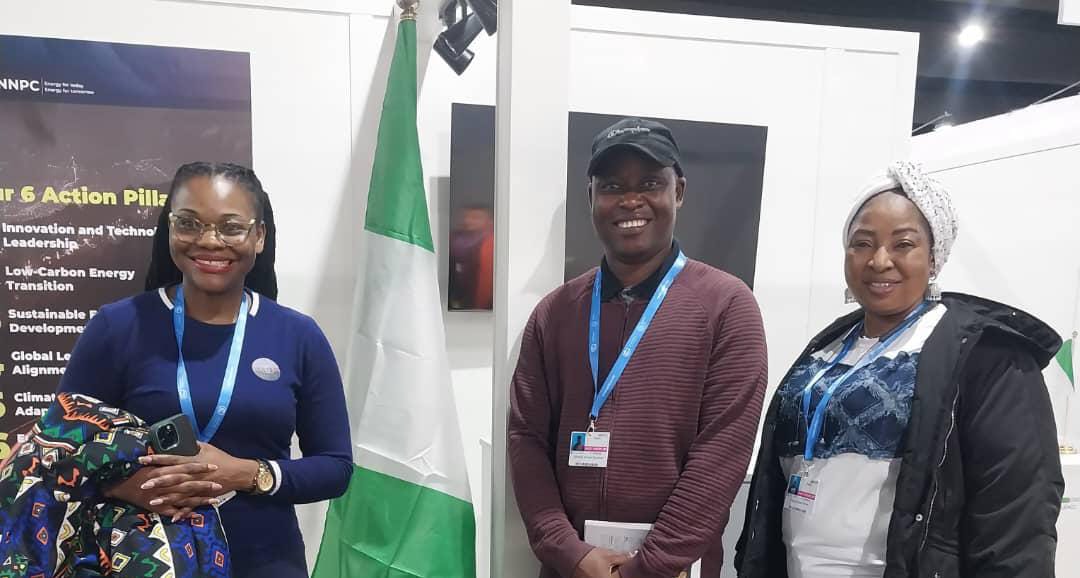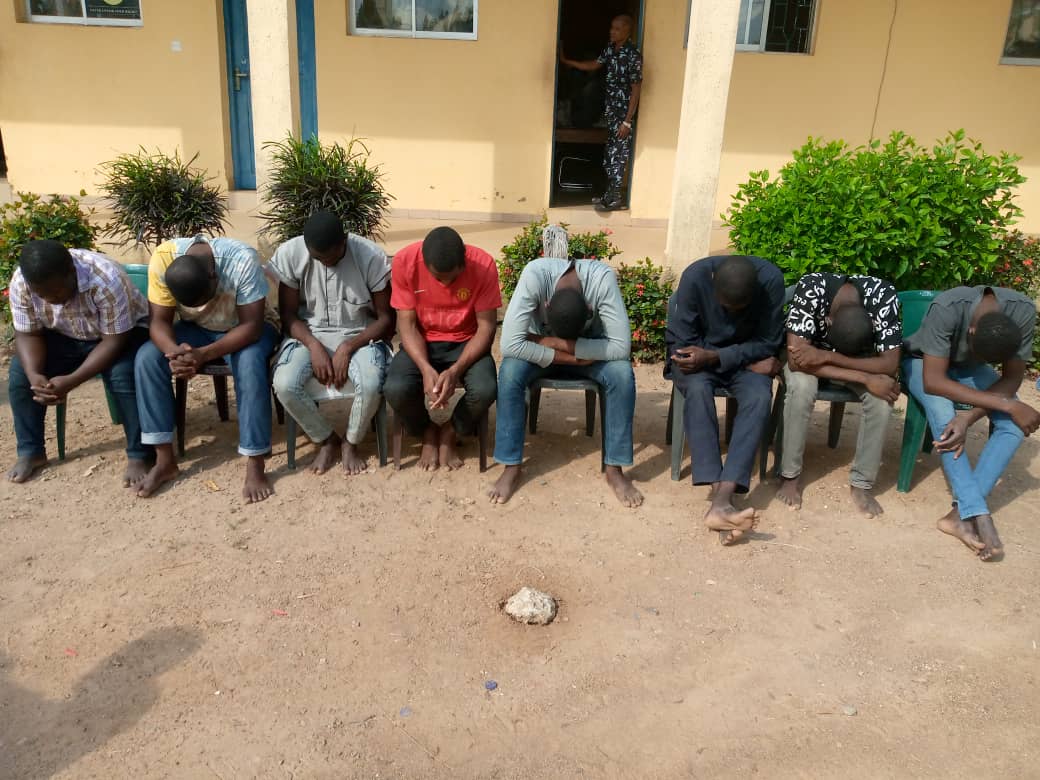
Osun State Delegation at COP29 in Azerbaijan L-R: Prof Chinwe Obuaku, Consultant to the state government on Climate Change and Renewable Energy; Mr Samuel Ogunleye, Director of Climate Change, Osun state ministry of Environment and Sanitation; Alhaja Hauwa Folake Ahmed, Special Adviser to Governor Adeleke on Energy.
As the world gathers at the United Nations Framework Convention on Climate Change (UNFCCC) 29th Conference of the Parties (COP29) in Baku, Azerbaijan, Osun State, Nigeria, brings forward an inspiring story of transformation, resilience, and hope through its Onibueja Restoration Project. From a neglected dumpsite to a vision of environmental renewal, Osun’s bold endeavor stands as a model for sustainable urban development, directly addressing pressing issues like environmental degradation, public health, and climate resilience.
A Turning Point for Osun State
In 2021, Osun State recognized the urgent need to address a looming environmental and public health crisis. The Onibueja Dumpsite, located near the metropolis of Osogbo, had long served as a disposal site for waste, handling the refuse of over 195,000 people. Years of unregulated dumping had taken a visible toll: degraded soil, toxic air quality, and recurring fires from decomposing waste made the area hazardous for nearby communities. The dumpsite symbolized more than just neglect—it represented a growing gap between human development and environmental responsibility.
Determined to chart a new path, the Osun State government undertook a mission to reclaim and transform this wasted land. Their ambitious plan for the Onibueja Restoration Project exemplifies the belief that degraded urban spaces can be reclaimed for the benefit of nature and people alike. This project now shines as a testimony to what’s possible when vision meets action.
Turning Waste to Wealth: The Process of Restoration
The heart of the Onibueja Restoration Project lies in transforming an environmental hazard into a thriving green space. This transformation was not a simple task. Osun State initiated a comprehensive cleanup, clearing and grading the land to prepare it for a new life. The project then introduced a range of native and exotic tree species, employing phytoremediation to detoxify the soil naturally. Phytoremediation uses specific plants to absorb harmful pollutants from the soil, breathing life back into degraded lands.
But the vision does not stop at soil improvement; it’s about creating a green hub that benefits everyone. By fostering a biodiverse ecosystem, Osun State plans to create a refuge for native flora and fauna. The new urban park will include walking paths, green spaces, and gathering areas where residents can enjoy nature. This park won’t only be a place of leisure; it will stand as a living, breathing monument to sustainable restoration and community healing.
Benefits for Health, Community, and Climate
Restoring the Onibueja site will bring immediate improvements to the air quality in Osogbo and surrounding areas. With fewer toxins and increased vegetation, residents will experience cleaner air and improved health outcomes. This is especially significant for those vulnerable to respiratory ailments, who have suffered for too long under the oppressive smoke and pollutants from the old dumpsite.
Moreover, the project fosters economic and social opportunities through eco-tourism and environmental education. The site is set to become an eco-education center where students and visitors can learn about sustainability and conservation. In time, the Onibueja urban park could attract tourists interested in green spaces and eco-tourism, bringing in revenue that can further support Osun State’s environmental initiatives.
Perhaps most importantly, the Onibueja Restoration Project helps Osun State contribute to global climate goals, aligning with Sustainable Development Goals (SDGs) 11 (Sustainable Cities and Communities) and 13 (Climate Action). By increasing vegetation cover and nurturing a green urban space, the project enhances Osun’s role as a regional carbon sink, aiding Nigeria’s national climate commitments.
A Model of Sustainable Development
At COP29, where global leaders are discussing solutions for a warming planet, Osun State’s Onibueja Restoration Project offers a hopeful narrative. Osun has shown that restoring neglected land is possible and that it can be done with measurable benefits for people, wildlife, and the climate. This project is a testament to what can be achieved when governments prioritize the environment alongside development.
The Onibueja Restoration Project challenges all of us to reimagine what a responsible future can look like. For those of us grappling with the environmental impact of urban waste and pollution, this project offers a roadmap: neglected land can be revived, degraded areas can become green havens, and communities can flourish in harmony with nature. Osun’s story is not just its own; it’s a blueprint for cities worldwide.
The journey from dumpsite to green hub is a monumental achievement, but it’s only the beginning. Osun State invites communities, organizations, and individuals at COP29 and beyond to join them in this journey. Restoring Onibueja is an inspiring step, but sustainable development requires partnerships, continuous investment, and ongoing stewardship.
As Osun State’s delegation presents this project at COP29, let it serve as a call to action for all attending nations: If we want a future in which both people and the planet thrive, we must prioritize transformative projects like the Onibueja Restoration. Together, we can build a sustainable world—one green hub at a time.
Professor Chinwe Obuaku-Igwe is a Consultant and Technical Team Lead to Osun State Government on Climate Change and Renewable Energy. She is also a visiting Professor at the Global Affairs and Sustainable Development Institute (GASDI), UNIOSUN.

L-R: Prof Chinwe Obuaku, Consultant to the state government on Climate Change and Renewable Energy; Mr Samuel Ogunleye, Director of Climate Change, Osun state ministry of Environment and Sanitation; Alhaja Hauwa Folake Ahmed, Special Adviser to Governor Adeleke on Energy.








